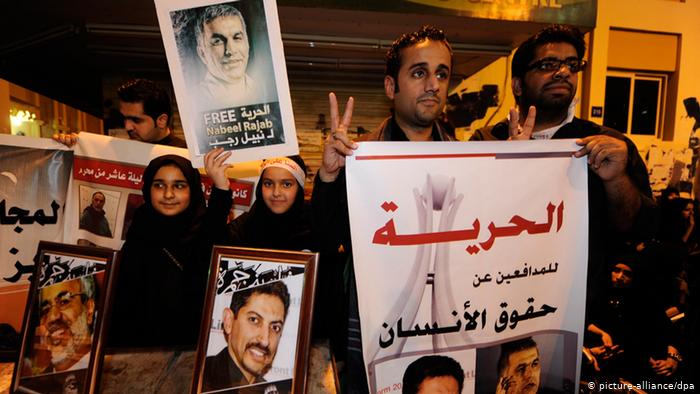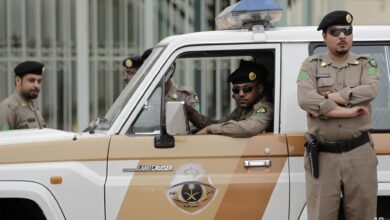
Bahrain’s King Hamad bin Isa Al Khalifa on Sunday ordered that 551 convicts have their nationality reinstated.
The Gulf Arab state’s BNA news agency confirmed the move and said the monarch had tasked the country’s interior minister with preparing a list of those who may qualify.
King Hamad said eligibility for citizenship restoration should be evaluated based on “the seriousness, impact and consequences of the crimes as well as the danger the convict may post to national security,” BNA reported.
Amnesty for opposition activists?
It was initially unclear how many of those winning a reprieve are in jail for their part in the 2011 Bahrain uprising, a three-year campaign of non-violent civil disobedience by the country’s Shiite majority.
Read more: Bahrain strikes oil in biggest find since 1932
The Sunni-dominated government responded to the protests with a brutal crackdown with the help of the militaries of Saudi Arabia and the United Arab Emirates.
King Hamad declared martial law, and hundreds of protesters were rounded up and jailed following mass trials. Many were tortured and a handful died of their injuries in jail, several human rights groups have said.
As opposition groups were banned, many leading opposition figures and rights activists fled abroad, while those in jail were stripped of their citizenship.
Bahrain’s government has been denounced internationally for the suppression and its continued marginalization of Shiites.
State repression continues
Despite promises of reform, Germany’s Bertelsmann Stiftung’s Transformation Index 2018 placed Bahrain 89th out of 129 countries for its political and economic transformation. The think tank said government repression was unlikely to ease soon.
Read more: Bahrain upholds life sentences for opposition leaders
The Britain-based activist group, the Bahrain Institute for Rights and Democracy, has said the Gulf Arab state had stripped a total of 990 people of their citizenship since 2012.
They include the 138 people jailed this week by a Bahraini court in connection with terrorism charges.
“Tuesday’s convictions give rise to serious concerns about the application of the law, particularly through a mass trial that reportedly lacked the procedural safeguards necessary to ensure a fair trial,” UN rights commissioner Michelle Bachelet said in a statement.
“Deprivation of nationality must not be arbitrary, especially on discriminatory grounds,” she said, stressing that “arbitrary deprivation of nationality places the individuals concerned and their family members in a situation of increased vulnerability to human rights violations.”
Those convicted — Shiite Bahraini citizens, according to a judicial source — belonged to a group of 169 people accused of forming a “terror” group with links to Iran’s Revolutionary Guards.
mm/rc (AFP, AP, Reuters)




